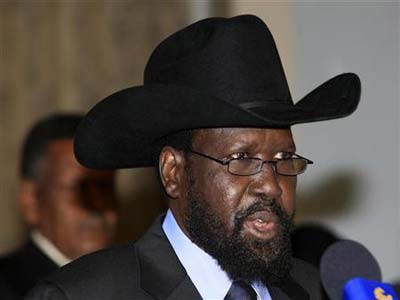 East African leaders travelled to South Sudan Wednesday to witness President Salva Kiir’s expected signing of a peace deal with rebels, amid threats of United Nations sanctions in the absence of an accord.
East African leaders travelled to South Sudan Wednesday to witness President Salva Kiir’s expected signing of a peace deal with rebels, amid threats of United Nations sanctions in the absence of an accord.
Ethiopian Prime Minister Hailemariam Desalegn, who has hosted months of talks aimed at ending the 20-month war that has killed tens of thousands of people, arrived for the signing ceremony due later in the day.
Kenyan President Uhuru Kenyatta’s office said he left Wednesday morning for South Sudan’s capital Juba, where he is to be joined by Sudan’s Omar al-Bashir and President Yoweri Museveni of Uganda, who sent troops to back Kiir during the war.
South Sudan’s presidential spokesman Ateny Wek Ateny has told AFP that Kiir “will sign the peace agreement”, but the government has said it still has “reservations” about some parts of the power-sharing deal.
At least seven ceasefires have already been agreed and then shattered within days — if not hours — in the world’s newest country, which broke away from Sudan in 2011.
The deal to be signed Wednesday would give rebels the post of first vice president, which means that rebel chief Riek Machar would likely return to the post from which he was sacked in July 2013, six months before the war began.
Machar already signed the deal on August 17.
The UN Security Council on Tuesday piled pressure on Kiir to do likewise, warning it was ready to “act immediately” if he did not.
“We will take immediate action if he does not sign, or if he signs with reservations,” said Nigerian Ambassador Joy Ogwu, whose country currently chairs the council.
The African Union on Wednesday warned any deal had to be not only signed but also implemented, calling on both sides to “commit to genuine reconciliation” and to “put the interests of South Sudan and its people above narrow interests.”
South Sudan’s civil war erupted in December 2013 when Kiir accused his former deputy Machar of planning a coup, sparking a cycle of retaliatory killings that has split the country along ethnic lines.
The conflict has been characterised by ethnic massacres and rape.
The deal before Kiir commits both sides to an immediate end to fighting and the implementation of a “permanent ceasefire” within 72 hours.



